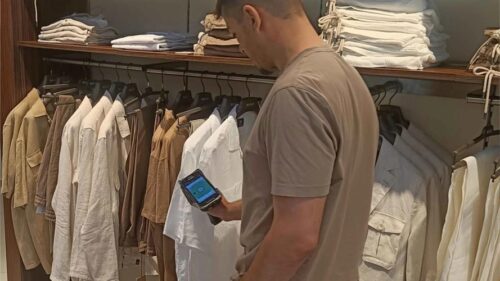
11.18.24 – CSCMP Supply Chain Xchange
Eight in 10 retail associates are concerned about the lack of technology deployed to spot safety threats or criminal activity on the job, according to a report from Zebra Technologies
Companies feel growing pressure to invest in Gen AI.
That challenge is one of the reasons that fewer shoppers overall are satisfied with their shopping experiences lately, Lincolnshire, Illinois-based Zebra said in its “17th Annual Global Shopper Study.” While 85% of shoppers last year were satisfied with both the in-store and online experiences, only 81% in 2024 are satisfied with the in-store experience and just 79% with online shopping.
In response, most retailers (78%) say they are investing in technology tools that can help both frontline workers and those watching operations from behind the scenes to minimize theft and loss, Zebra said.
Just 38% of retailers currently use artificial intelligence-based prescriptive analytics for loss prevention, but a much larger 50% say they plan to use it in the next one to three years. Retailers also said they plan to invest in self-checkout cameras and sensors (45%), computer vision (46%), and RFID tags and readers (42%) within the next three years to help with loss prevention.
- The difficulty of implementing “click and collect” or in-story returns, despite high shopper demand for them;
- The struggle to confirm current inventory and pricing;
- Lingering labor shortages; and
- Increasing loss incidents.
“Many retailers are laying the groundwork to build a modern store experience,” Matt Guiste, Global Retail Technology Strategist, Zebra Technologies, said in a release. “They are investing in mobile and intelligent automation technologies to help inform operational decisions and enable associates to do the things that keep shoppers happy.”
The survey was administered online by Azure Knowledge Corporation and included 4,200 adult shoppers (age 18+), decision-makers, and associates, who replied to questions about the topics of shopper experience, device and technology usage, and delivery and fulfillment in store and online
